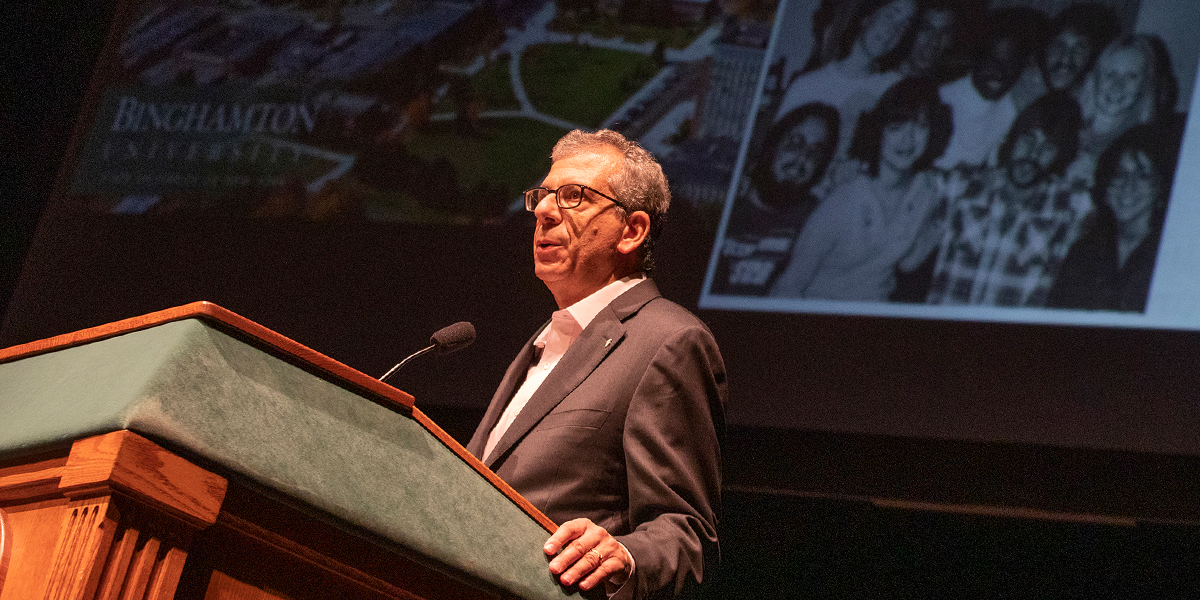Peter Altabef ’80, chair and CEO of Unisys, discusses ethics of biometrics in Briloff Lecture
Like any rapidly-growing technology, Altabef warned that biometric systems bring both opportunities and risks

With new technologies increasingly becoming a part of everyday life, Peter Altabef ’80 urged students in attendance at the 33rd annual Abraham J. Briloff Lecture Series on Accountability and Society to explore the ethical considerations.
Altabef, the chair and CEO of Unisys, focused specifically on the field of biometrics — unique physical characteristics such as fingerprints and DNA that can be used to identify a person.
“Well beyond fingerprints and using your face to open your phone, today’s biometrics are embedded with artificial intelligence that use data of sometimes unknown provenance to make decisions faster than the blink of an eye — all without human involvement,” he said.
Altabef’s talk, “The Ethics of Biometrics: Establishing an Evaluation Framework,” presented students with four simple questions they should ask when considering the implementation of biometrics systems:
- Is this system fair?
- Is this system limited or too open to unintended consequences?
- Will the information the system collects be protected?
- Can I learn more about this easily?
Like any rapidly-growing technology, Altabef warned that biometric systems bring both opportunities and risks.
“What is absolutely ‘you’ are the unique attributes you were born with, like your fingerprints, your DNA or the pattern of your retina. These attributes are attractive to system administrators, but they are also ripe targets for criminals,” he said. “It is important to recognize that there are multiple, parallel concerns about the ethical use of biometrics.”
Altabef then cited recent prominent uses of biometrics, including the CLEAR registered traveler program that streamlines security check-ins at airports, the use of facial scans for authentication to access private company data, digital health and vaccine passports to prove COVID-19 vaccination status, and facial recognition technology used by law enforcement.
He noted that there were obvious benefits to the use of biometrics in each example. But once he applied the four questions in his ethical framework, concerns about security and privacy started coming to the forefront, with no easy solutions.
“It is worth noting that any technological solutions I mention today will likely have been replaced or modified within a few years. This is one of the fastest-evolving technologies in the security space,” he said.
Altabef closed by urging students to develop their own ethical framework to help make difficult decisions about emerging technologies.
“The number of unique ethical frameworks in this room may equal the number of people in this room. Each of us will apply our experiences, opinions and expertise to the use of this technology,” he said.
“Perhaps you disagree with some of my analysis, and come to different conclusions for these examples. If so, excellent. I consider that a success. You are thinking critically about these issues. I think they are important. I hope you do as well.”
